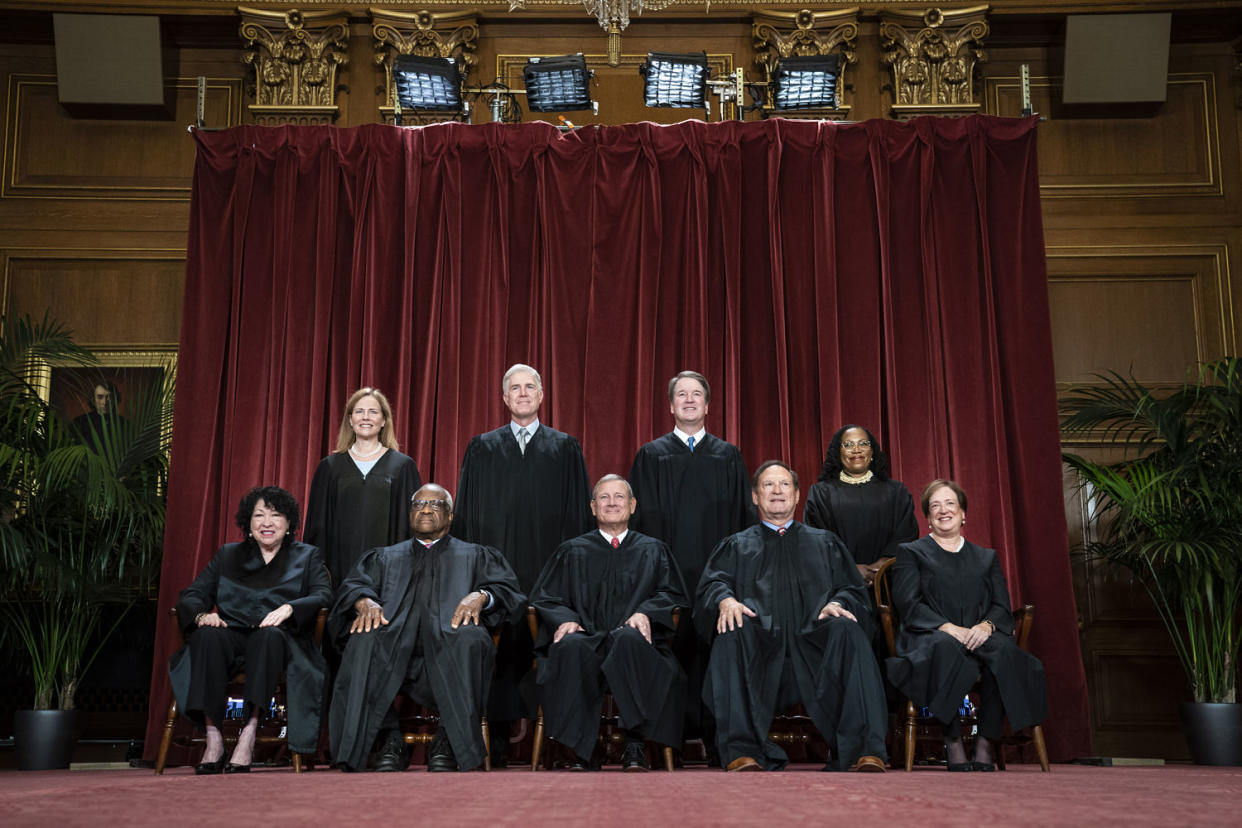Why the Supreme Court may take a while still with its Trump immunity decision

- Oops!Something went wrong.Please try again later.
The Supreme Court’s next opinion day is Thursday. But for multiple unsatisfying reasons, we shouldn’t expect Donald Trump’s immunity ruling just yet.
Making the ruling’s absence more frustrating is the observation by Norman Eisen and Michael Podhorzer for MSNBC Daily that the court decided to keep Trump on the presidential ballot 25 days after the oral arguments in that case, while more time than that has elapsed since the April 25 hearing in the immunity appeal.
The reasons for this difference in treatment aren’t good, but there are apparent reasons that I’ll explain.
It’s true that the court’s ruling in the Colorado ballot case, Trump v. Anderson, showed the court’s priorities in siding with Trump and doing so as quickly as it did. But a combination of those priorities and the differences between the ballot case and the immunity case suggest that it may be at least another month until the latter ruling comes. (The court gives a heads-up about the days on which it will issue rulings but won’t say which ones are coming ahead of time. With dozens of appeals left and only a handful coming per day, it’s too soon in the term, which usually wraps in late June, to know which ones to expect.)
Trump’s appeal to stay on the Colorado ballot despite the 14th Amendment’s insurrectionist ban was argued Feb. 8. The court ruled in his favor March 4. That date seemingly wasn’t random: March 5 was Super Tuesday, when a bunch of states held their primaries, including Colorado. The court didn’t have to issue its ruling then (nor side with Trump), but that may explain the timing.
But when it comes to the federal election interference case, there’s no impending Super Tuesday equivalent. Not unless you count the November general election or the point at which sending the case back for trial before the election would be too late — a point that may have already passed or soon will.
Everyone, including the justices, knows that the looming election is a ticking time bomb that can blow up the case itself if Trump wins and orders it dismissed, effectively granting him the very immunity that’s the subject of debate in the appeal. But the looming election isn’t formally at issue in this case, like it was in the Colorado ballot case.
The irony, and perhaps the tragedy, of Trump potentially avoiding trial for allegedly trying to subvert the 2020 election by winning the 2024 election hasn’t been motivation enough for the Roberts Court to act expeditiously.
And of course, as the hearing displayed, the justices may have different ideas about how to resolve this claim, including two justices, Clarence Thomas and Samuel Alito, whose impartiality in this case is questionable. Those two Republican appointees in particular might not be in a rush to sort out any differences they have with their colleagues. That could add further delays if the court is seeking to harmonize differing views into a coherent ruling or, if the justices are hopelessly divided, with the time it takes for a majority ruling to respond to concurring and dissenting opinions, and for those differing opinions to respond to the majority during the drafting process.
Indeed, the justices didn’t need to take Trump’s appeal to begin with. And if they were that eager to step in, they could have chosen to do so during an earlier stage when special counsel Jack Smith pressed them to review Trump’s immunity claim in December. The court has already shown that it doesn’t care about speed in this case — to what degree we’ll learn each opinion day for the next month or so.
Subscribe to the Deadline: Legal Newsletter for weekly updates on the top legal stories, including news from the Supreme Court, the Donald Trump cases and more.
This article was originally published on MSNBC.com

